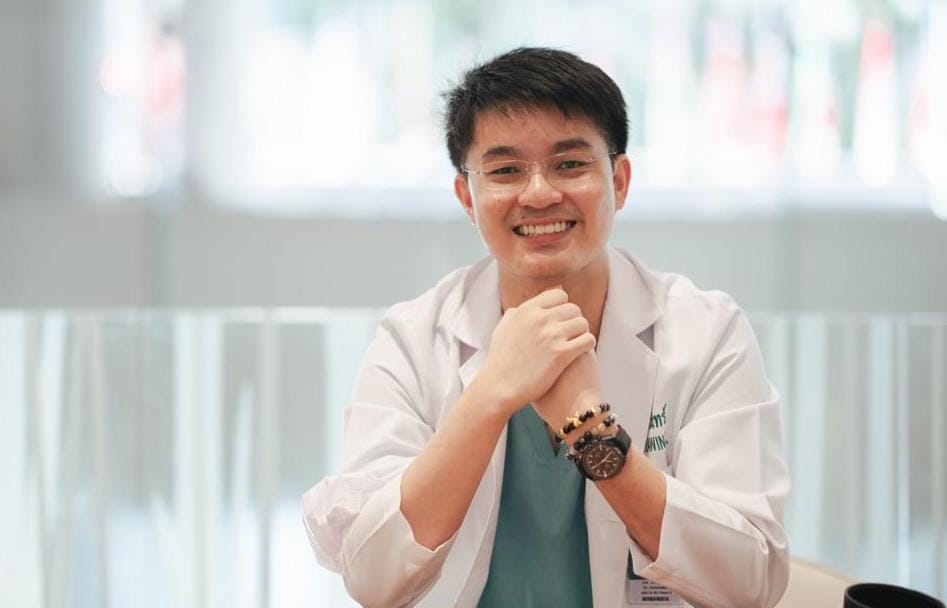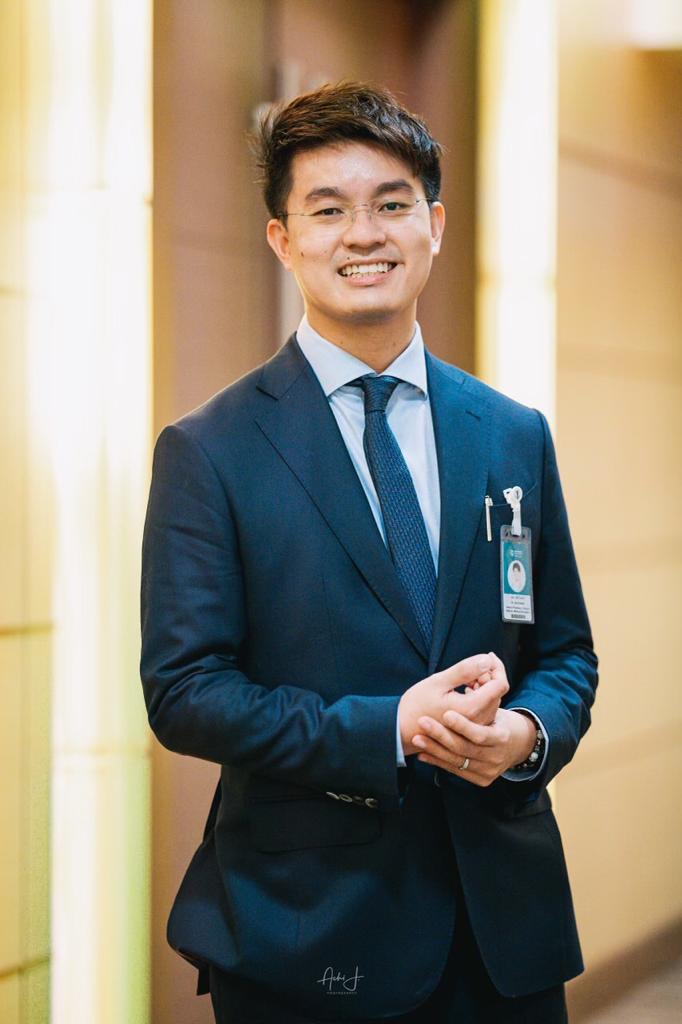How patient care is the heartbeat of their vision.
“I strongly wanted to work with patients, and lend a helping hand to them; help them recover,” Dr. Achirawin Jirakamolchaisiri tells me when I ask him what led him to medicine. As a practicing cardiologist and a member of the Bumrungrad International Hospital Executive Team for five years, he explains how he and the hospital share the same priority of putting their patients first. “Our core mission is taking care of people. That’s what we stand for; what bumrungrad means in Thai,” he explains. “Our priority is to continuously flourish in every service that improves the quality of our patients’ lives, or improves their outcomes. In all my years in Bumrungrad, I never sensed a change or a deviation in this core value.”
One of these directions is the Bumrungrad Heart Institute, whose management team Dr. Achirawin is leading. “It’s just passed the early stages, but we changed it from just a cardiology centre to an institute because heart disease already is, and will probably continue to be, the most prevalent cause of death in the world, due to an ageing population, and the rise of diabetes and hypertension,” he explains. “Your heart is the most important organ despite being just the size of your fist, and it cannot and should not be managed just by cardiology. Thus, the institute brings together other experts: cardio-vascular thoracic surgeons, internal medicine specialists, geneticists, and cardio-rehabilitation experts, as well as sub-specialities in cardiology itself, just to name a few. For all of us, our aim is to deliver the best quality of care to the patients and their family,” because they deserve no less.
He spoke to Masala further about what else makes the Bumrungrad Heart Institute’s mission and vision unique.
You mentioned that the Heart Institute brings together doctors from different specialities. Can you tell us the ways that all the doctors in the Institute collaborate effectively as a team?
That question answers itself – it’s a team effort. It’s not about whose patient belongs to who, or who the primary physician is. We have to look after the patient’s whole journey, the whole disease, and most importantly, their whole life. For complex cases, the team will evaluate the case together, and collaborate between sub-specialities. Even if we may not immediately agree on the diagnosis, it’s part of building a team. In that team, everyone has to be the best at their specialty and prioritise the patient’s best interests. That has been my vision ever since I was put in charge of the Institute.
Bumrungrad is known for its cutting-edge technology and for its expert practitioners. Tell us about how the Institute uses both.
Bumrungrad has been a pioneer in investing in, and using, the best state-of-the-art medical technology available. To screen for heart disease, we have all the modalities that we need in our imaging. More than just basic stress or treadmill tests, we also have advanced imaging, CT scans, cardiac MRIs, and cardiac nuclear imaging, which is the most advanced type of imaging. When all these modalities come together, it allows us to make better decisions.
For treatment, our centre has one of the most advanced electro- physiology mapping systems in the world, and we also have state-of-the-art technology for coronary angiograms, some of the strongest clinicians and those in other disciplinaries who specialise in heart failure, and we are the only private hospital in Thailand with the capability to do heart transplantations. We are also the only centre in Thailand that has a cardiologist who specialises in inherited genetic diseases. And those are just a few examples.
Can you share with us some of the Institute’s recent successful case stories?
Last year, we performed the hospital’s first successful heart transplant. It was a patient who was just 15 years old, and whose heart was very weak. After the successful transplant, what brought me to tears was not that I was on the executive team that helped make the transplant a reality, but that this girl who had nearly died could go home and celebrate her birthday with her family, and live a new life from then on. That is what Bumrungrad and I have always been on the same page on.
Statistically, South Asians are more susceptible to heart disease than other ethnicities. Do you offer specific genetic screening for different ethnicities, and do you have any specific advice for our readers?
In terms of ethnicity, it’s true that cardiovascular disease is more prevalent among South Asians, so I would recommend regular screenings – at age 40 and over for men, and 45 and over for women. There is no genetic susceptibility for South Asians in particular, but if your family has a strong family history of heart disease, such as heart attacks, arrhythmia, and death from cardiac causes that still cannot be explained, our recommendation is to consult a cardiologist, or even a cardiac geneticist to investigate and identify the cause as much as we can.
Secondly, good health begins with ourselves. You need to avoid any risk factors that may develop into heart disease: avoid high-sugar foods, smoking, and drinking in excess, and beware of hypertension. You have to do regular health check-ups, especially when you’re older. And exercise regularly! While we prioritise our patients, you should also prioritise yourself – previous generations used to only prioritise family, work, and success, but remember that overall wellbeing is also important.







